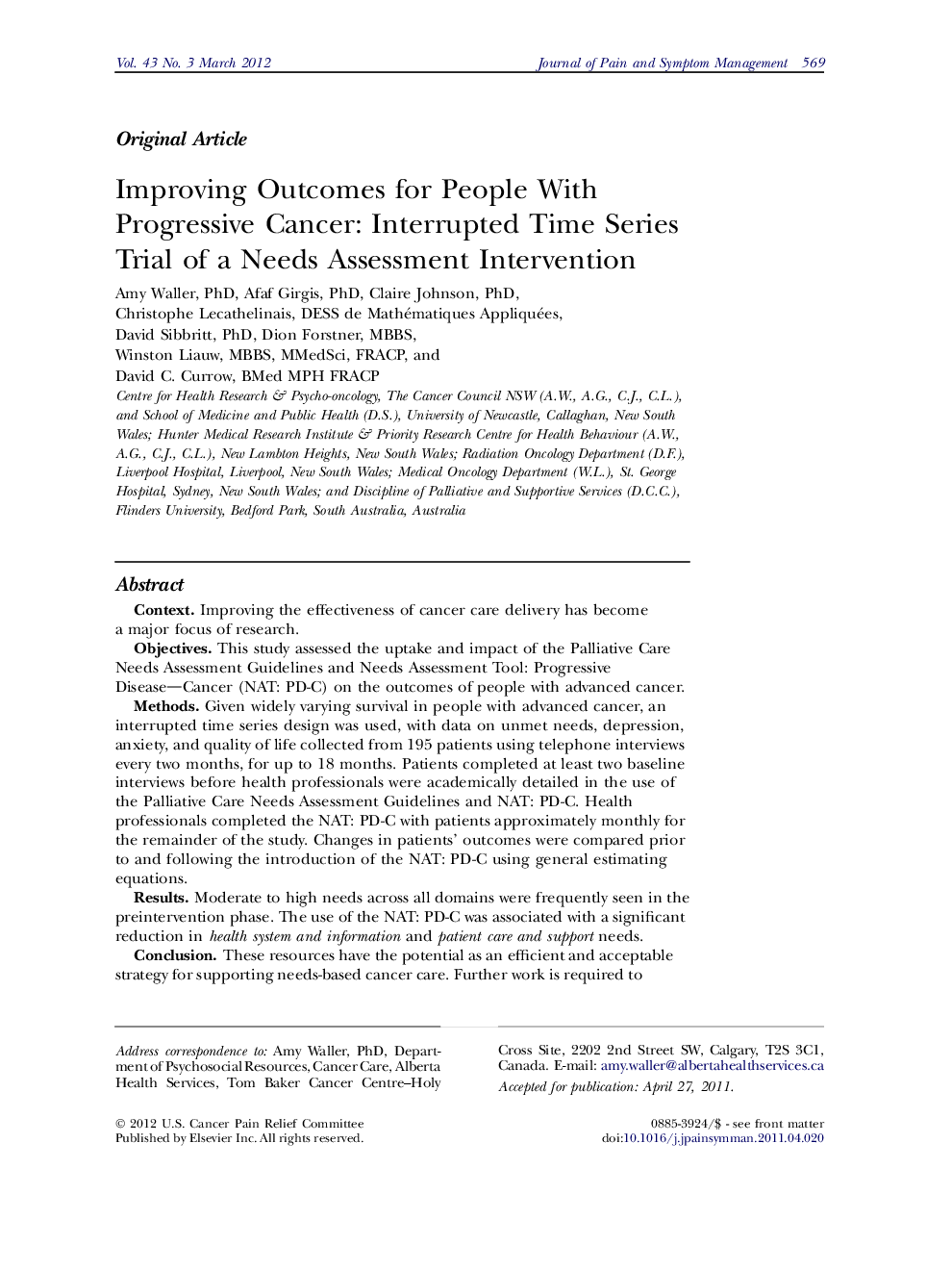| Article ID | Journal | Published Year | Pages | File Type |
|---|---|---|---|---|
| 2729834 | Journal of Pain and Symptom Management | 2012 | 13 Pages |
ContextImproving the effectiveness of cancer care delivery has become a major focus of research.ObjectivesThis study assessed the uptake and impact of the Palliative Care Needs Assessment Guidelines and Needs Assessment Tool: Progressive Disease—Cancer (NAT: PD-C) on the outcomes of people with advanced cancer.MethodsGiven widely varying survival in people with advanced cancer, an interrupted time series design was used, with data on unmet needs, depression, anxiety, and quality of life collected from 195 patients using telephone interviews every two months, for up to 18 months. Patients completed at least two baseline interviews before health professionals were academically detailed in the use of the Palliative Care Needs Assessment Guidelines and NAT: PD-C. Health professionals completed the NAT: PD-C with patients approximately monthly for the remainder of the study. Changes in patients’ outcomes were compared prior to and following the introduction of the NAT: PD-C using general estimating equations.ResultsModerate to high needs across all domains were frequently seen in the preintervention phase. The use of the NAT: PD-C was associated with a significant reduction in health system and information and patient care and support needs.ConclusionThese resources have the potential as an efficient and acceptable strategy for supporting needs-based cancer care. Further work is required to determine their unique contribution to improvements in patient outcomes.
